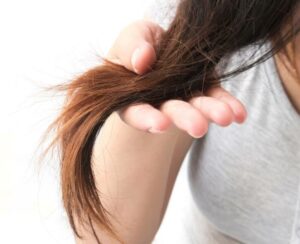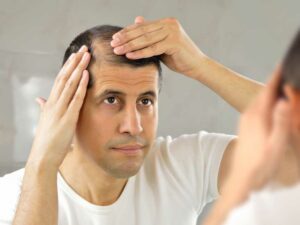It is often asked by visitors of this site whether smoking can affect hair loss. The answer may be yes.
According to a recent study by the Harvard School of Public Health, smoking can increase almost all the major androgenic hormones including DHEA, androstenedione, testosterone, and dihydrotestosterone (DHT), the hormone most closely linked to hairloss.
The study, which examined a cross-section of 1,241 randomly sampled middle-aged U.S. men, compared hormonal levels of nonsmokers and smokers. The study made made sure that weight and age were not a factor in the study results.
According to the study, dehydroepiandrosterone (DHEA) was 18% higher in smokers, dehydroepiandrosterone sulfate (DHEAS) was 13% higher in smokers, androstenedione was 33% higher in smokers, testosterone was 9% higher in smokers, and DHT, the hormone most closely linked with hairloss, was 13% higher in smokers.
Although the study did not study hairloss specifically, it is commonly accepted that DHT is the main hormone associated with hairloss. Propecia, the oral pill for hairloss, works by blocking testerone from being converted into DHT. Increasing levels of Testosterone and DHT are known to be associated with an increase in the amount and rate of hairloss.
Smoking alone will not make someone not predisposed to lose hair start losing hair, nor will stopping smoking prevent your hair from falling out if you are predisposed to hair loss. However, if this study is correct, it is possible that smoking may increase the rate at which your hair does fall out and possibly the amount.





